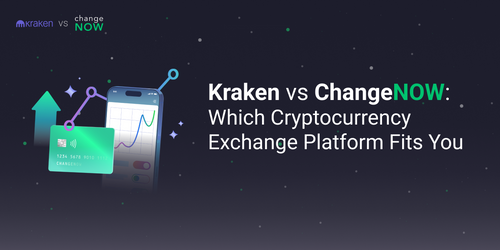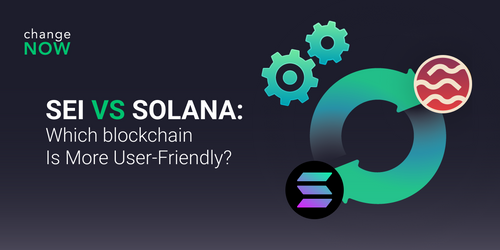Cryptocurrency Regulations Worldwide Explained
Some countries are working on their own regulations, while others turn to FATF (Financial Action Task Force) in search of regulatory guidance. As of 2021, there are countries with more or less elaborate virtual assets legislation on every continent. Those regulations are bound up with international AML and CFT laws and reflect the state’s policy on exchanges, ICOs, taxation, mining, trading, digital assets’ status, and more.
A universal and international set of crypto laws is yet to be designed. For now, different countries put their own regulations in place.

Europe Crypto Regulations
The European Union has one of the most elaborate legal frameworks for crypto in the world. Storing, trading, selling, and buying crypto is legal in the EU; however, taxation and exchange regulations vary from country to country. The Fifth Anti-Money Laundering Directive (introduced in January 2020) brought the European crypto industry under strict AML legislation. European legislators presented a draft of a bill that promises to provide a blueprint for the region’s crypto law. The project seeks to establish a legal framework and competitive promotion of cryptocurrencies on this growing market, protect crypto holders and the funds they invested.
Some of the EU members have peculiar local cryptocurrency regulations. For instance, Malta is a very progressive country in terms of Bitcoin law: digital coins are recognized as “a medium of exchange, a unit of account, or a store of value” on a state level. There is no special taxation policy for crypto in Malta, and VAT is not applicable to exchange transactions. Estonia also proved to be a country of innovative approach, recognizing crypto as “a value represented in digital form” and licensing exchanges under strict AML and KYC rules.
As for non-EU members, some of them tread in the EU’s footsteps. The United Kingdom hasn’t deemed crypto a legal tender yet, but the government regulates exchanges: they are required to register with the FCA. Digital assets are partly taxed in the UK, depending on the types of activities and investments. Belarus is another state that welcomes crypto investors, allowing buying, selling, and mining crypto on its territory. However, there is no legal framework for ICOs and crypto exchanges.
Asia and Australia
Singapore Crypto Regulations
In Asia, the states have varying approaches to crypto, Singapore being one of the much favored options among fintech projects. This country recognizes crypto as goods and charges a local VAT analogue, Goods and Services Tax. Exchanges are legal and regulated by the Monetary Authority of Singapore.
South Korea Crypto Regulations
South Korea has a favorable climate for crypto — digital financial assets are legal and tax-free at the moment. The government, one of the largest investors in cryptocurrencies, has taken measures to diminish crypto-related tax crimes. In China, storing and trading cryptocurrency is completely banned. Meanwhile, Hong Kong, China’s pain in the neck, grabbed the opportunity to become a regional crypto power and started creating a solid legal framework and a licensing system for exchanges.
Indonesia Crypto Regulations
Indonesia recognizes cryptocurrencies as commercial merchandise, implementing a series of requirements for crypto operators, such as anti money laundering compliance and risk assessment. Japan has undoubtedly the most nuanced and well-thought crypto legislation in Asia. The state recognizes digital assets as property and taxes them as a “miscellaneous income” (15%-55% rates). Exchanges have to undergo a registration process with Japan’s Financial Services Agency. It imposes rigorous AML/SFT rules on them and demands high-level cybersecurity.
Australia Crypto Regulations
Australia elaborated a comprehensible virtual asset regulatory policy, declaring exchanges legal and treating crypto as property (subject to Capital Gain Tax).
The Americas
North and South America have been very open regarding cryptocurrencies, as only two countries in the region, Bolivia and Ecuador, prohibit them completely.
US Crypto Regulations
Since federal and state authorities in the USA treat crypto differently, there are a lot of uncertainties in the cryptocurrency regulation field. Though digital coins are not considered legal tender, exchanges are recognized by FinCEN as “money transmitters”, but stay in the legal grey area. Meanwhile, the IRS treats crypto as property and taxes it respectively. As if it was not enough, the SEC identifies crypto assets as securities, complicating things for American crypto operators even further.
Mexico and Canada Cryptocurrency Regulations
Things are not looking brighter in Canada: the crypto industry is underregulated, leaving room for maneuvering. Exchanges are technically legal and are required to comply with AML rules. Mexico, on the contrary, got serious about crypto regulations and elaborated a decent framework under Central Bank’s supervision. Digital coins were defined as “virtual assets” and required to abide by strict AML laws.
Argentina
Argentina, despite being one of the countries with a widespread use of crypto, does not yet have formal crypto legislation. There are some tax regulations in place, such as the 2018 reform of the income tax law that set a ceiling of 15 % for the tax burden on cryptocurrencies.
Africa Cryptocurrency Regulations
Africa is yet to join the international crypto legislation club: the overwhelming majority of countries on the continent have next to no legal guidance on crypto. Out of 54 independent states, only a handful have coherent Bitcoin regulations; crypto is completely banned in Morocco, Algeria, Libia, Namibia, Zambia, and Zimbabwe. In Egypt, a religious state legislator prohibited using Bitcoin under Islamic law.
South Africa doesn’t recognize crypto as a legal tender, but attempts to tax it as income and capital gain at the same time. The South African Reserve Bank’s instructions are scarce and controversial. A similar situation has come about in Nigeria, where the state legislators issued a set of legal guidelines for crypto-related projects only to warn the citizens against using crypto a couple of months later.
The lack of CFT and AML legislation in Africa combined with overall instability of African countries’ economies arouse concerns about the future of crypto in the region. Some major players on the digital assets market try to adopt crypto regulations of European or Asian countries; others turn to FATF for guidance. In any case, for now, the African crypto industry is regulated from the outside. The rules are enforced mainly by the players themselves as compliance with international law gives them credibility.
On the African continent, an excellent situation exists for cryptocurrencies, since political instability and mistrust in local currencies, added to the large number of smartphones and the minimum number of people with bank accounts, paved the way for cryptocurrencies to be a better option. By 2018, many countries in this continent did not have much knowledge about this type of assets, that is why they outlined a plan to observe other economic groups such as the EU, America and countries such as Japan, Hong Kong and Singapore and their progress in regulations. In 2021, after 2 years of research, countries like South Africa and Nigeria have begun to carry out projects to regulate the activity through their value and stock commissions, being the examples for the rest of the continent.





